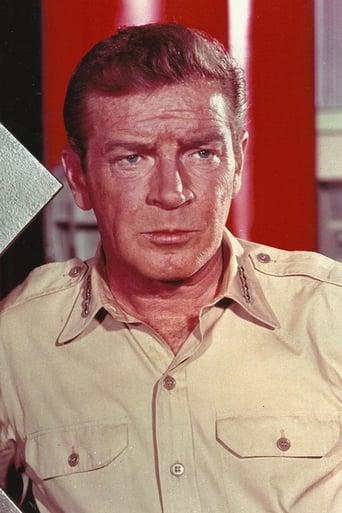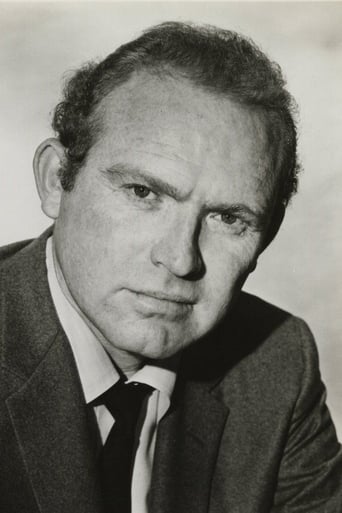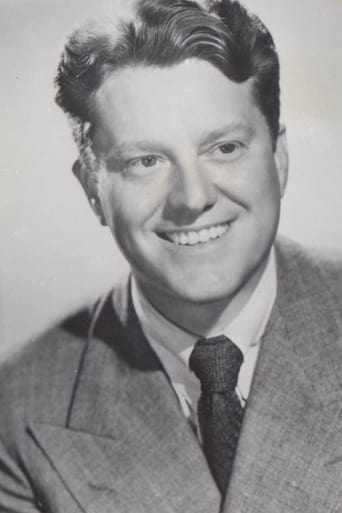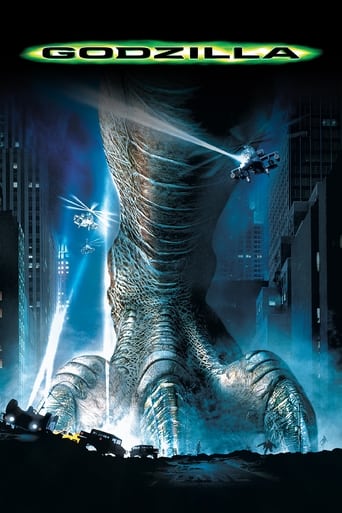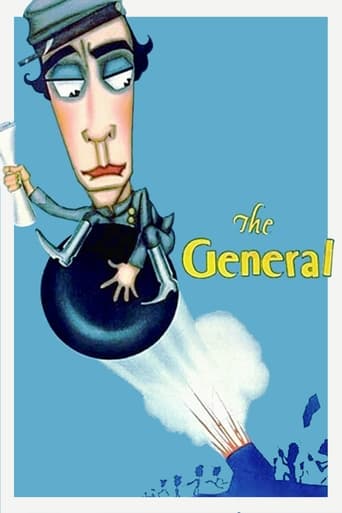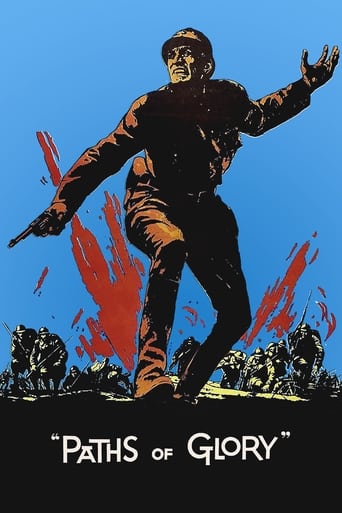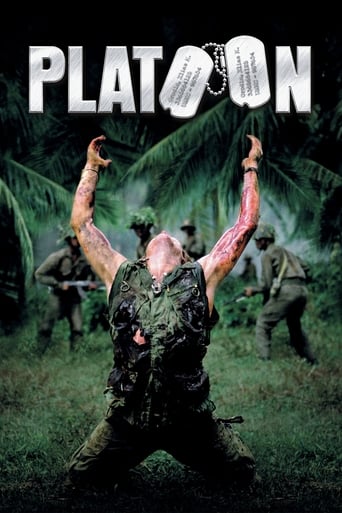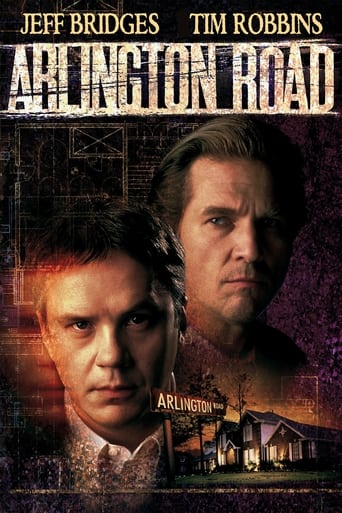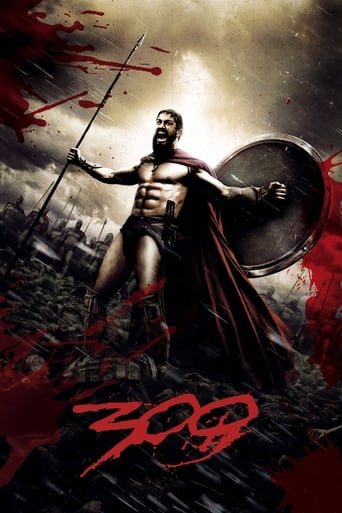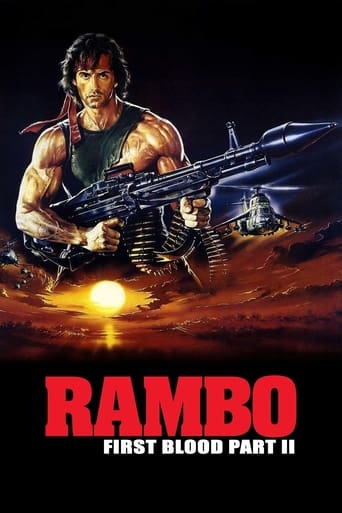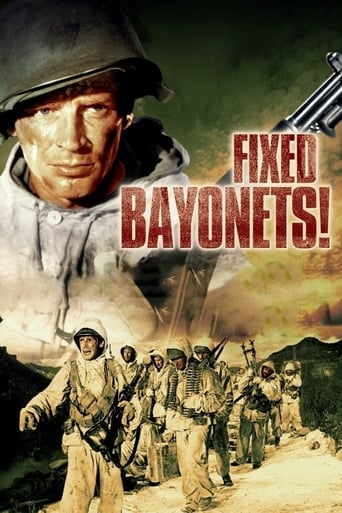

Fixed Bayonets! (1951)
The story of a platoon during the Korean War. One by one, Corporal Denno's superiors are killed until it comes to the point where he must try to take command responsibility.
Watch Trailer
Cast


Similar titles
Reviews
FIXED BAYONETS! is an American-made Korean war movie about a platoon of soldiers who agree to fight a desperate rearguard action to hold off enemy troops to allow the rest of the army to depart from the area. The majority of the running time sees said platoon holed up in an icy cave and struggling to cope with everything the enemy throws at them.This is a simply-plotted film without much in the way of characterisation, although the action scenes are well handled and emphasis suspense over effects, which is always good. Richard Basehart plays the sweating corporal who discovers himself inching nearer and nearer to command as each of his superiors is killed in turn by the fighting. It's this internal conflict which propels the story but I did find it largely stretched out and uninteresting. The camaraderie and dialogue scenes are well handled however and the humour is a welcome asset. Watch out for James Dean in a cameo role.
FIXED BAYONETS – 1951 This is not an antiseptic flag waving propaganda war film. It is a brutal, hard hitting piece about fear, and courage, among men who know they could die at any moment. Director Sam Fuller pulls no punches in this Korean War film from 1951.The US, UN and South Korean forces had pushed the North Korean Army back almost to the border with China. They were then caught off guard when Chinese Red Army forces attacked them. This soon forced a massive retreat along the whole front.This film is about a small group of American soldiers left behind to man a rear guard post. They need to make the Chinese believe that they are facing a much larger unit. The US unit needs to delay the Chinese for 48 hours to allow their own troops a chance to fall back and regroup.They chose a narrow pass through the mountains to base their defence on. They mine the approaches and set up a series of machine gun posts. Whenever the Chinese probe the defences, the American hit back hard and heavy, keeping the Chinese guessing as to the US unit strength.This tactic can only work for so long, as there are only 50 or so soldiers. First the LT. in charge, Craig Hill, is killed, then, the two senior sergeants, Michael O'Shea and Gene Evans bite the bullet. Command of the survivors, falls to Richard Basehart. Basehart is a former officer candidate who has a fear of giving orders.Forced to step up and take charge, Basehart fights his personal demons and does just that. He holds the post for as long as he can, then leads the survivors back to meet with the rest of the division.Except for a couple of scenes, the whole production was filmed on a sound stage. This does not distract from the film at all, there are plenty of well-staged battle sequences etc throughout the film. The action is down and dirty, with all looking like they have been put through a wringer. This is a gritty, well-made war film.The director, Sam Fuller also scored big a little earlier with another Korean War film, THE STEEL HELMET. Both these are well worth a look for war film buffs.
Of all the war movies I have ever seen (some very good, some good, some less good and others, simply awful and preachy), this one, together with all his other "companions" (see "The Big Red One") is simply what one might expect, or better, should expect from a "war" movie. I put quotes around "war" because in reality, Fuller's movies of this genre are all but war movies. If you look deeper, you will see that they are actually anti-war movies at their best and absolutely not pontifying a message of peace, but rather depicting war and the men involved in it, as a total chaos, a slaughterhouse and a total misery for those who live it. Fuller's movies do not glorify war, but rather show the grittiness, the dirt, the shadows and the deepest darkness that surrounds and envelopes people who are in its midst. There are just a few others in his league, such as Peckinpah and John Irvin who managed to send the message home. Yet, sadly, there are still people "glorifying" war as a noble expression of human endeavor. Such people never understood a thing about war, or simply never served on active duty, in order to judge with their own eyes what war is really all about. Usually, such people sit comfortably behind a desk in a wonderfully padded armchair, or simply on a luscious couch, following Baseball or Football events and allow others to do their dirty work for them. "Fixed Bayonets!" is a crude, raw and unforgiving depiction of what common men are put through in a war situation. The Korean War might be just the excuse to do so, since every war, past, present and yes, even future, brings inexorably pain and death to those who fight it, as well as to those who wait back home, for a husband and father (today also a wife and mother), or for a brother, sister, son or daughter... Samuel Fuller's intention was always to bring reality into the game, but evidently, his message never got through to some, especially not to those hyper-thyroideal muscle men who believe that brawns alone will win you a war... In my book, this movie, together with all other Sam Fuller's work of this kind should a must see in schools everywhere. This would finally teach children what war is really like. But, said this, I just remember another movie, called "All quiet on the Western Front", in its two incarnations, one in 1930, and the other more recent, in 1979, which already dealt with the very same argument and what did those movies affect? Nothing. War is still among us. And so is the misery of our human condition. When will humanity listen to people like Fuller, Peckinpah, Irvin, Remarque and many others who lived through war and survived it? Oh sure, they are honored now... now that they are dead and cannot do too much harm to the war and death industry, but will there ever be someone who will actually manage to put the word "The End" to war? I seriously doubt it. In my view, this movie is simply a must for those who are seriously interested in studying war as a phenomenon, not just as a past time.
Fixed Bayonets completes director Samuel Fuller's one-two of 1951 movies about the Korean War, the other being the equally (maybe even slightly better) gritty and gripping The Steel Helmet. For those unfamiliar with Fuller's style, let's just say it is as far removed as possible from what Hollywood passes for war movies the past 20 years. No sentimentality and schmaltz here, just a straight-forward and fine-tuned soldier movie, from the boys, for the boys.Fuller, a war veteran himself, takes a no-frills, realistic approach. With a tight script that weaves themes of courage and confronting one's fears into superb suspense and action scenes that have stood the test of time admirably, Fixed Bayonets does exactly what it says on the cover. The miniature work is decent enough and the studio backlot that passes for the Korean mountains completes the illusion without distractions. It's still a low-budget b-movie but it's holding well at the seams. The acting is all-around solid with Gene Evans once again stealing the show as the gruffy, no-nonsense Sgt. Rock.Having worked as a journalist for New York newspapers in his younger years, Fuller understands the importance of story above all. Sure, he's not exactly the epitome of subtle - the inner monologues for example should have been avoided altogether. But I'm willing to ignore that because his movies have a sense of urgency and conviction that is hard to find: he's a man with a story to tell, he grabs you by the shoulder and says "this is how it happened, now watch this". And "this" is not about the politics or dramatization of war but war itself, men killing other men in some snowy hills in the middle of nowhere.


